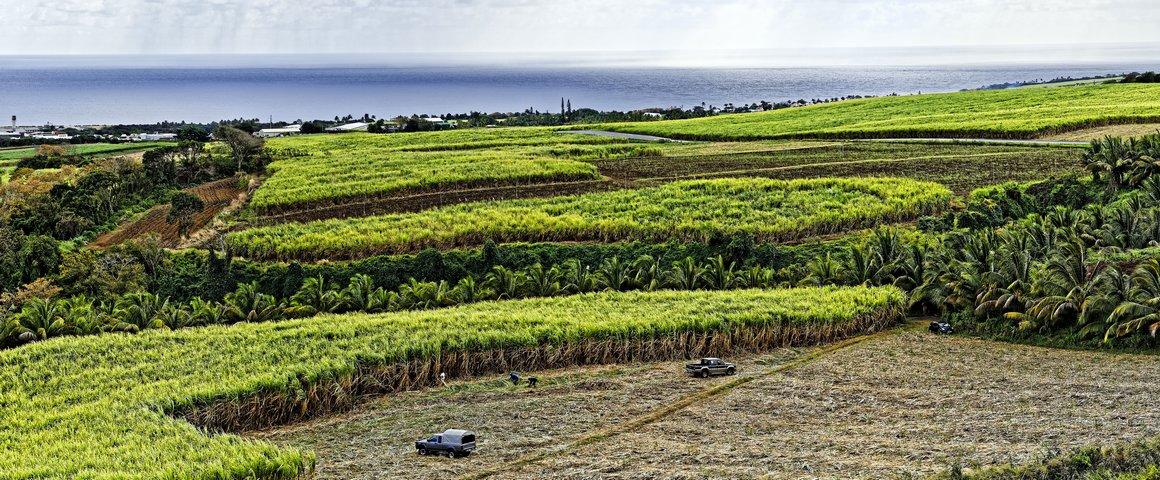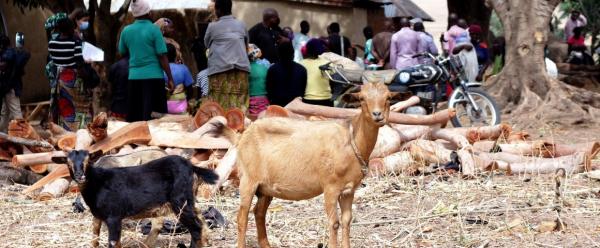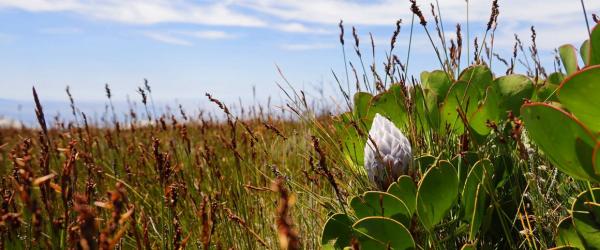Results & impact 28 October 2025
- Home
- CIRAD news
- News
- RITAs: innovations for agriculture in the French overseas regions
RITAs: ten years of innovations for agriculture in the French overseas regions

Farmers in the French overseas regions face shared agriculturconstraints and challenges © R. Carayol, CIRAD
Assane Ben Ali, a market gardener in Mayotte, has done away with chemical treatments and replaced them with nets that protect his courgettes, tomatoes and cucumbers from flies. In French Guiana, farmers are now producing high-quality chocolate by growing cocoa varieties bred within the framework of the RITAs. Meanwhile, on Réunion, livestock farmers are using special grass meters to optimize the size of their herds and grazing periods. The agricultural innovation and transfer networks (RITAs) have had countless successes since their creation in 2012.
Over that time, the RITAs have worked to support the sustainable development of local livestock and crop value chains in eight overseas territories*. CIRAD and ACTA (an organization representing agricultural technical institutes), which are key overseas rural development players, have been chosen by the Ministry of Agriculture to coordinate the RITA networks.
The overseas regions share the same agricultural constraints and challenges
Food sovereignty, adaptation to climate change, insularity and small markets, difficulty accessing land, dependency on imported inputs, and so on. Farmers in the overseas regions face shared agricultural constraints and challenges. "Farming systems in the overseas regions are in transition and farmers are keen to produce differently. This means a range of challenges to be tackled, experiments to be conducted and initiatives to be federated", says CIRAD's Frank Enjalric, national co-coordinator of the RITAs.
In all, the RITAs associate 150 structures and mean farmers, agronomists, engineers, technicians, teaching staff, advisors, local authority staff and members of agricultural cooperatives working together. They are addressing some 20 topics of shared interest, such as agroecological engineering, soil fertility, agroforestry systems, grassland management, herd health, animal welfare, product characterization and quality, agricultural diversification and agri-tourism.
Groups working locally or across overseas regions
Over their ten years of existence, the RITAs have facilitated countless workshops, field trips and demonstrations: on-farm processing, open-air poultry runs including trees, good veterinary care practice, use of service plants, tours of certified organic farms, etc. "Comparing points of view and experiences, sharing issues and bringing together all the players in the agroecological transition makes it easier to roll out concrete solutions aimed at farmers", Frank Enjalric explains. "Several meetings between overseas regions under the aegis of two projects (AgroEcoDom and TransAgriDom) have each brought together between 150 and 200 who were delighted to talk and work together."
All the innovations and good practices identified have been capitalized upon and shared via COATIS, the RITA collaborative platform, which contains large amounts of advice and training materials in the form of guides, technical advice notes and videos.
In 2023, talks between institutional players confirmed the merits of these networks as a unique forum for sharing experiences of common issues and working to build innovations to help farming systems in the French overseas regions make the agroecological transition.
As a result of the increased constraints farming systems face as a result of climate change, the authorities' desire to boost food sovereignty in the overseas regions and the importance of improving the economic and environmental performance of farms, the RITAs are about to enter their third phase. ACTA and CIRAD will continue to coordinate phase 3, which will also be extended to include the French Chambers of Agriculture.
"We are currently running a wide-ranging consultation of all the different territorial players in order to draft a plan of action that meets their needs", says Sophie Cluzeau-Moulay, co-coordinator of the RITAs and Head of overseas operations at ACTA. "The plan will be launched at the 2024 Paris International Agricultural Show."
* Guadeloupe, French Guiana, French Polynesia, Martinique, Mayotte, New Caledonia, Réunion, and Wallis and Futuna.



























